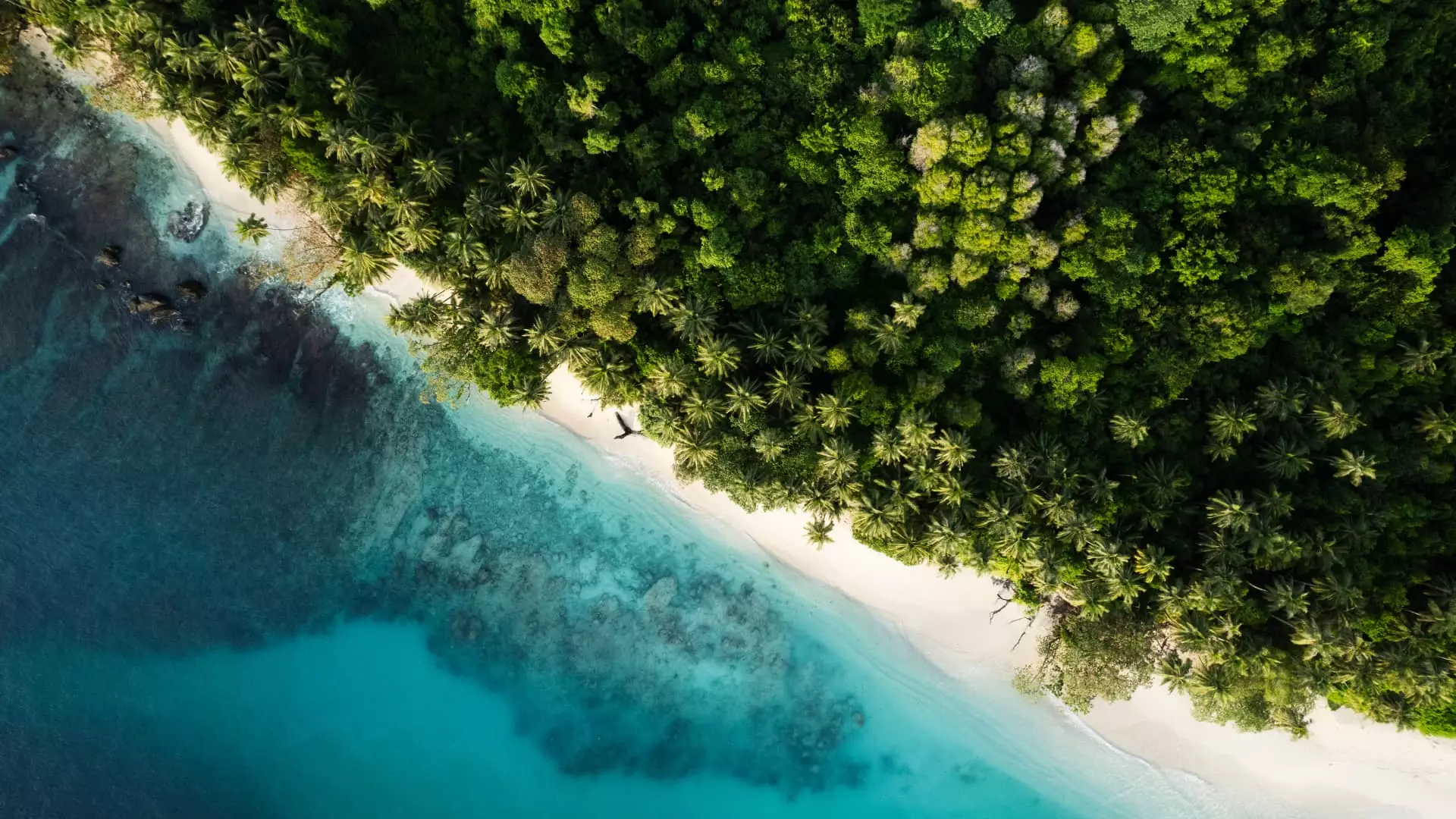In an age where the echoes of urban life seem to drown out the whispers of nature, the story of Richard Kvech and his friends transforming a desolate island into an eco-retreat is inspiring. Four years ago, when Kvech first arrived at Pinang Island—the only sign of human activity being a crumbling bungalow—he could have never envisioned the venture that lay ahead. This barren patch of land off the western coast of Sumatra presented both challenges and a canvas ripe for environmental restoration.
Joined by fellow Czechs—Tomas Ouhel, Stephan Kotas, and Martin Mrazek—Kvech sought not just to build an eco-resort, but to simultaneously preserve the untouched beauty that characterized Pinang. Their shared dream stemmed from Ouhel’s earlier conservation efforts on the nearby Bangkaru Island. Together, they committed to a lengthy discussion with the island’s dual owners before acquiring a 50-year lease for their ambitious project.
Kvech and his team dedicated themselves to eco-conscious construction, opting for materials sourced locally, including wood that blended seamlessly with the environment. The decision to dig wells provided fresh, underground water for both building and later use in the retreat. Solar panels soon adorned the space, replacing a reliance on fossil fuels with a more sustainable energy source. This initial phase, funded from their pockets, laid the foundation for a wider vision of what could be achieved.
The construction of guest accommodations certainly marked a significant milestone. The team produced a modest yet comfortable retreat capable of hosting up to twelve guests. With multiple options for privacy—some bungalows sporting private bathrooms and others featuring shared facilities—the lodge struck a balance between comfort and communal living.
An integral addition was the establishment of a permaculture-inspired garden, seamlessly integrating the retreat into its environment. Fostering biodiversity with chickens for egg production while implementing an effective waste management system mirrored their commitment to sustainability. These actions reflect broader strategies within the increasing global emphasis on reducing human environmental impact, marking Pinang as a conscious offering in a world of mass tourism.
Pinang Island welcomed its first paying guests just two years ago as word spread about the eco-retreat. The allure of untouched landscapes drew 100 visitors in a brief time, with activities promoting well-being like yoga, surfing, and creative pursuits becoming increasingly appealing. These experiences are complemented by the retreat’s tranquil settings and a price point aimed primarily at those seeking solace rather than luxury.
The environmental focus of the retreat does not mean compromising on modern comforts. Each booking includes an array of amenities from meals to daily cleaning services and activities like snorkeling and paddleboarding. Yet, luxury is not the primary selling point; the retreat presents itself as an adventure rather than an extravagant vacation. The pricing structure invites up to eight people for $999 per night, with additional guests welcomed at a cost, weaving community into the vacation experience.
However, despite the idyllic settings, challenges have arisen. The journey to Pinang Island is not for the faint-hearted, involving a complex series of flights and boat rides. In August 2023, a tragic accident highlighted the perilous nature of marine travel in the area, leading to a capsized boat during a storm. The incident sparked significant reflection among those involved in the retreat, emphasizing the necessity for improved safety measures in local transportation.
In the wake of this tragedy that claimed the life of a local captain, the management team undertook immediate action to bolster marine safety across the region. This included investing in a dedicated vessel equipped with modern safety features, ensuring the welfare of both guests and locals. Furthermore, the establishment of the Fifan Foundation aims to facilitate safety training for local sea captains—a proactive step towards securing the safety of the broader community.
Kvech’s vision for Pinang Island is both intimate and niche. His rejection of expanding the resort to accommodate mass tourism reflects a growing consciousness about the environmental footprint of travel. By creating a sanctuary that prioritizes a deep connection with nature, Kvech’s team welcomes adventurous souls eager to unplug from the modern world.
Still, the reality of managing such an initiative weighs heavily on Kvech. Splitting his time between the Czech Republic and Pinang, he acknowledges the inherent difficulties of island life, reiterating that it is far from the fairytale many might envision. Navigating cultural nuances and environmental challenges marks this undertaking as one not just of transformation, but of continual learning.
In a world increasingly stricken by overdevelopment, the story of Pinang Island embodies a refreshing return to authentic experiences, conscious living, and a symbiotic approach to tourism. The ongoing journey of Kvech and his team is a testament to what can blossom when dreams align with sustainable practices in harmony with nature.


Napsat komentář